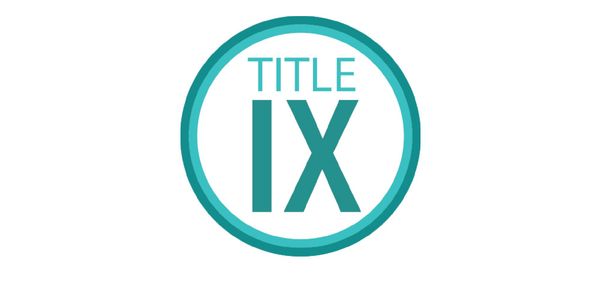Bringing Balance to a Broken System

On November 16, 2018, the U.S. Department of Education issued its long-awaited notice of proposed rulemaking (NPRM) regarding additional regulations implementing Title IX of the Education Amendments of 1972. The Department of Education says the proposed regulations aim to “clarify and modify Title IX regulatory requirements…to promote the purpose of Title IX by requiring recipients (schools) to address sexual harassment, assisting and protecting victims of sexual harassment and ensuring that due process protections are in place for individuals accused of sexual harassment,” but do they really do that?
The NPRM was officially published in the Federal Register Nov. 29, marking the start of a 60-day period for public comment by any interested party. Comments are due Jan. 28, 2019. What does this mean? It means that you, and everyone else who lives in this country, have the opportunity to weigh-in on the proposed changes; and you should.
These proposed changes will not only impact colleges and universities, but K-12 schools as well. As we continue to gather information and educate ourselves on the potential implications, we would like to share some of our initial concerns in the following areas:
- Narrower Definition of Sexual Harassment – The proposed regulations define sexual harassment as “unwelcome conduct on the basis of sex that is so severe, pervasive, and objectively offensive that it denies a person access to the school’s education program or activity.” As it stands, this definition would require student victims to wait for sexual harassment to be severe and pervasive before they seek help; this is dangerous and harmful. Additionally, this standard is much stricter than New York State’s new sexual harassment law for employers.
- Evidentiary Standard – The proposed regulations would allow institutions a choice of evidentiary standards that can be used to determine when sexual harassment has occurred. Institutions can choose either (1) “preponderance of the evidence” or (2) “clear and convincing evidence.” Preponderance of evidence is the standard used for all civil cases – singling out sexual assault and harassment is inequitable. Institutions would be required to use the same evidentiary standard for employee allegations of sexual harassment and other student conduct violations with similar disciplinary consequences.
- Cross Examination During a Live Hearing – The prospect of cross-examination is traumatic for survivors and undermines the purpose of Title IX. The questioning would be handled by advisers or attorneys, rather than the accuser or accused, and this raises concerns of equity.
- Expectation to Investigate – Institutions are required to investigate ONLY if the Title IX coordinator or an official with appropriate authority to “institute corrective measures” is aware of the incident, meaning that informing a professor or resident advisor is not sufficient to trigger an investigation.
- Limiting Scope to “On Campus” or within a school’s program or activity – Schools would be required to ignore all Title IX complaints of off-campus or online sexual harassment that happen outside of a school-sponsored program—even if the student is forced to see their harasser or rapist on campus every day.
- Mediation, Resolution, and Appeal – The concern is that some institutions would push mediation on students; forced mediation could result in additional trauma for victims.
As our team continues to put together resources and information for our community allies, campus partners, and K-12 partners around the proposed changes, we have one simple ask: GET INVOLVED. The 60-day public NOTICE AND COMMENT period is open until January 28, 2019, during which time the public – including colleges and universities, students, individuals, organizations – can submit comments detailing concerns or support.
We have provided some links below that provide additional information and can help you in sharing your comments and/or concerns about the proposed Title IX changes:
TITLE IX NOTICE AND COMMENT TOOL
Two Lawyers Discuss Proposed Title IX Changes
AGB Alert: Department of Education Issues Proposed Title IX Regulations on Sexual Harassment
National Women's Law Center: DeVos’ Proposed Changes to Title IX, Explained
A Message to Andrew Cuomo
“The Friends of Andrew Cuomo” spent over $300,000 to launch an ad campaign designed to paint former New York Governor Andrew Cuomo as a victim of political attacks because of the sexual harassment claims against him. We cannot allow this gaslighting to continue while the ad revictimizes victims of not only Cuomo’s sexual harassment but ANYONE who has ever experienced abuse. The tactics used by Cuomo and his supporters further represent the barriers that survivors face every day that prevent them from coming forward and getting support.
We at Vera House have asked Andrew Cuomo to take accountability for the harm he has caused on multiple occasions. Instead of admitting to his wrongdoings, he continues to use power and control to suppress and invalidate the truths of the survivors. Today we released a video, produced by Solon Quinn Studios and supported by Survivors’ Network, that sends a powerful message to survivors, "I believe you."
We are asking you to help us amplify the video so that survivors throughout New York and the rest of the world know that we believe and stand with them.
Here’s how to get involved:
1. Share our post on Facebook, Linkedin, and Twitter
2. Engage with our content on Instagram and TikTok
3. Share survivor support resources from your organization
4. Tag @verahouseinc
For any questions or to request an interview with a member of Survivors' Network, please contact us at: communications@verahouse.org

24-Hour Support Line